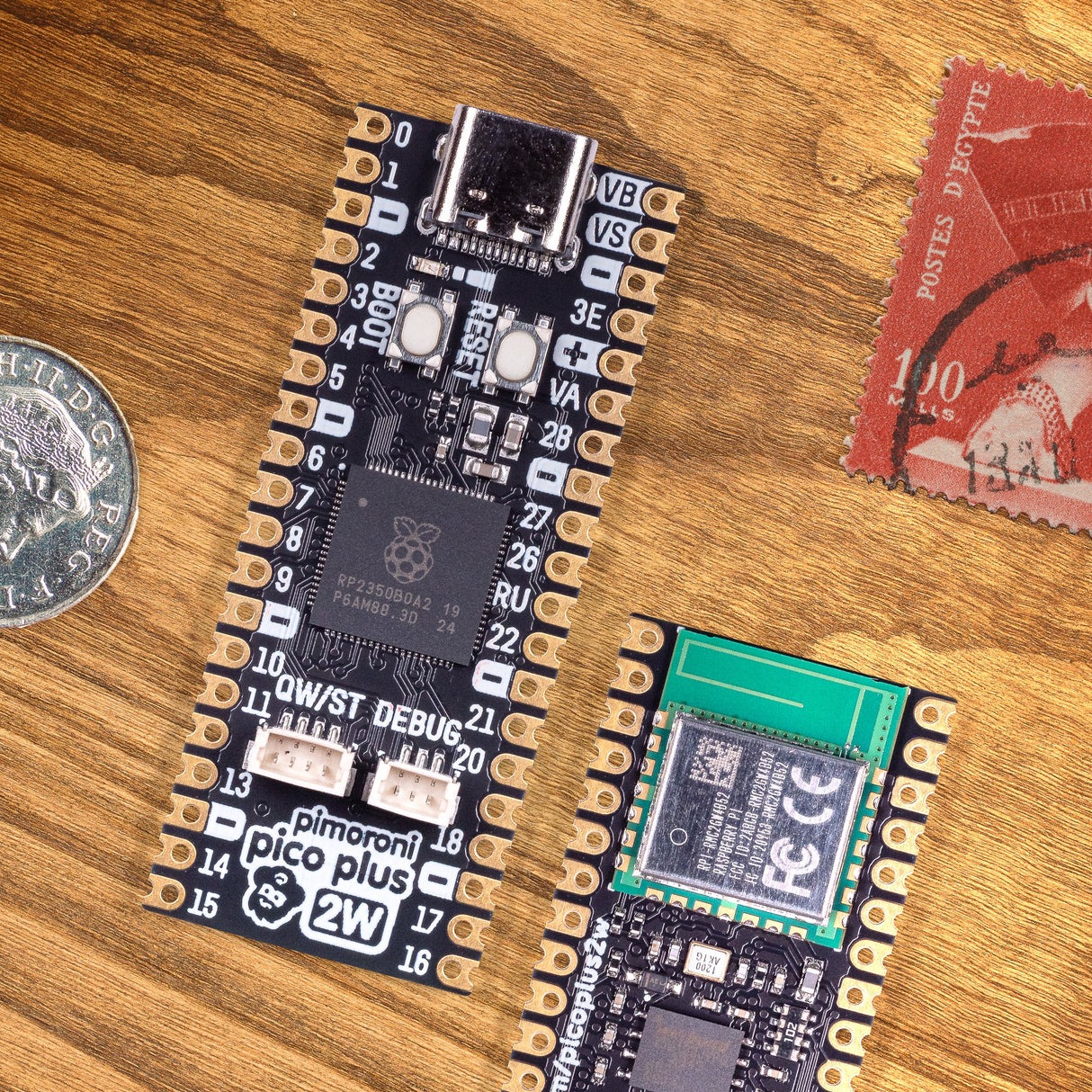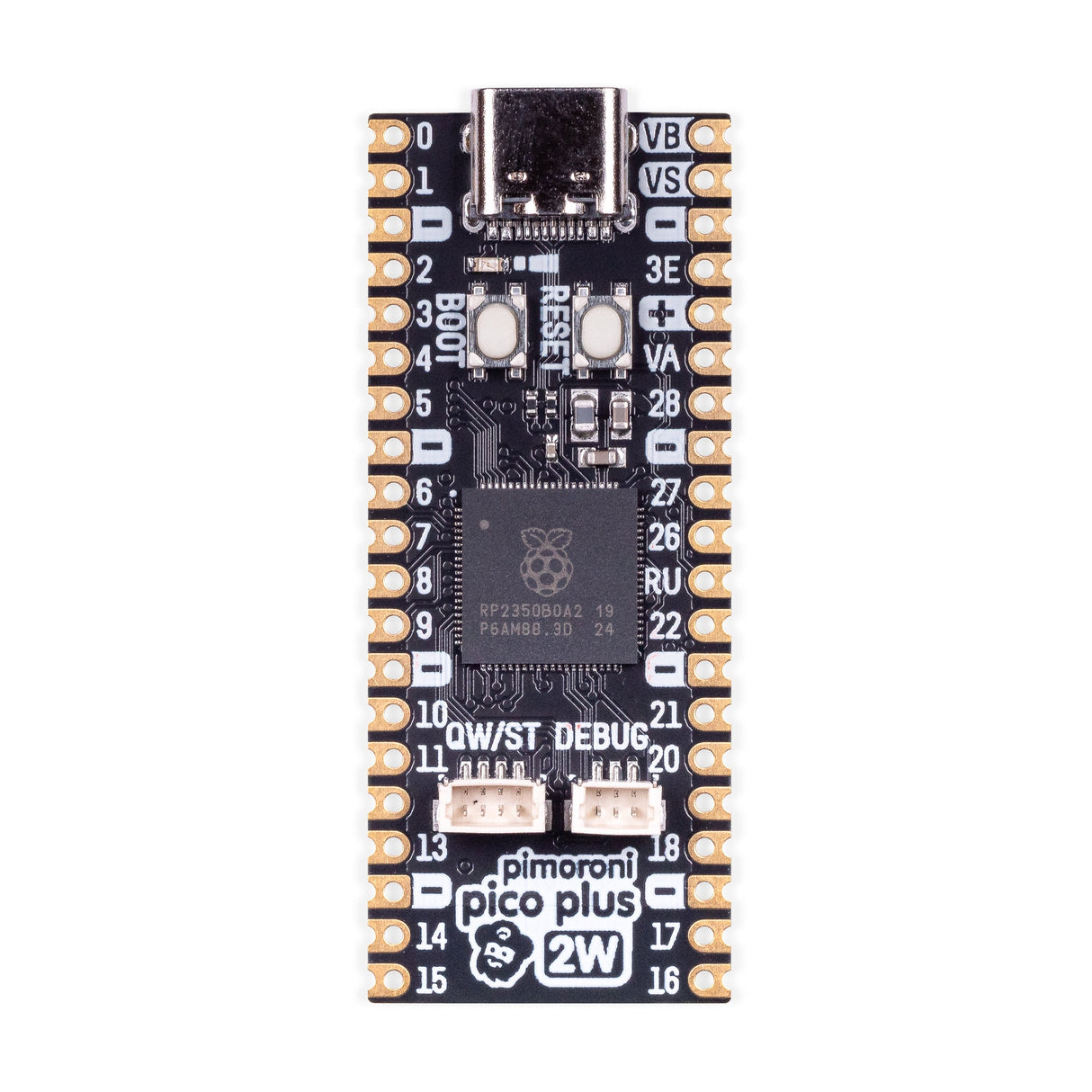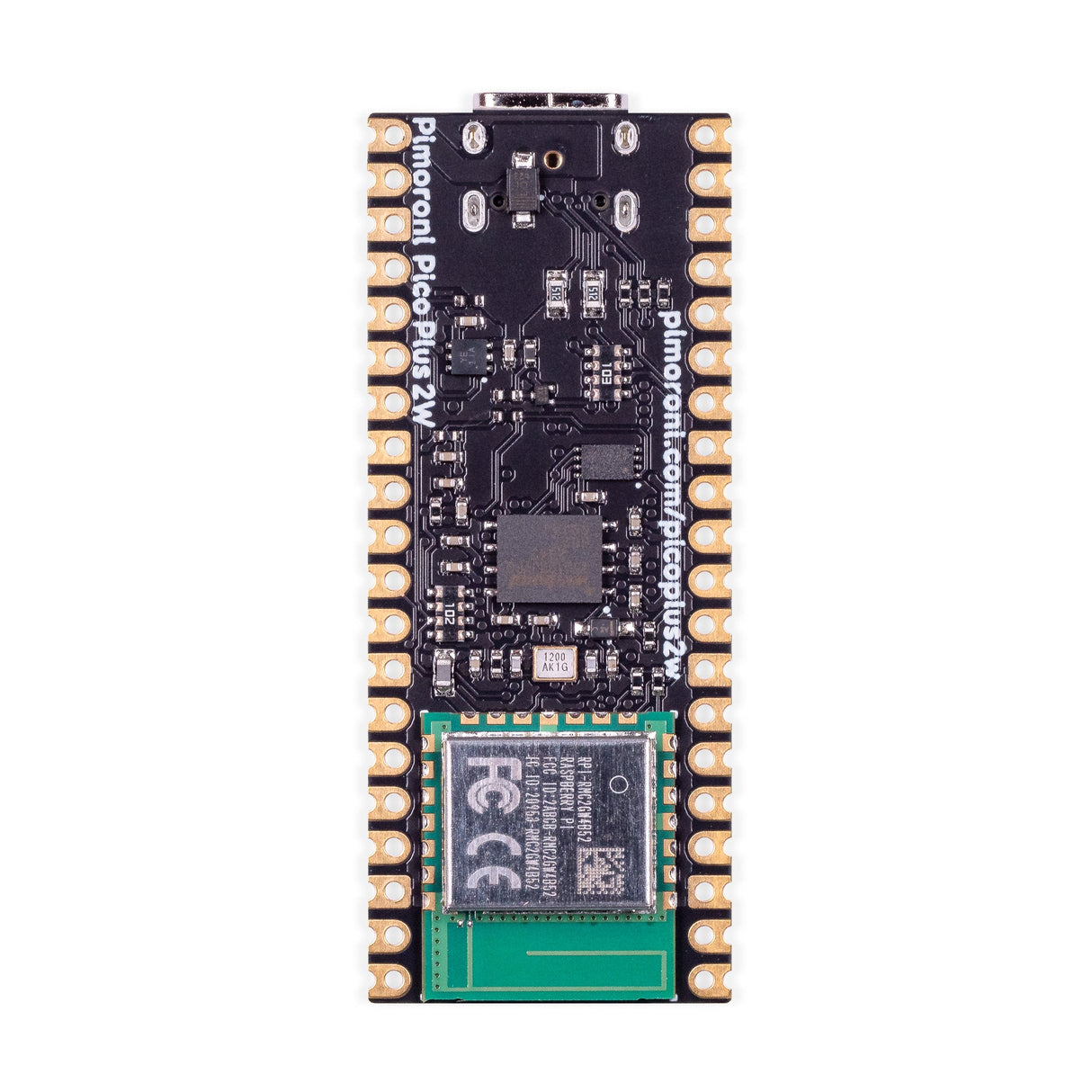Pimoroni Pico Plus 2 W
Pimoroni Pico Plus 2 W - 16MB is backordered and will ship as soon as it is back in stock.
Couldn't load pickup availability

Call us on 1300 240 817 between 10 AM and 4 PM on weekdays or email team@littlebird.com.au .
The Fastest Shipping
The Fastest Shipping
We ship faster because we built our own shipping 🤖 robot.
Pi Australia is operated by Little Bird, and we go to great lengths to ship your orders, often within minutes.
You can view shipping options and pricing at checkout without logging in.
For orders over 500g (such as bulky items), shipping may cost more than the initial estimate.
We deliver across Australia, and here are the options (based on your location; view them on the cart page):
- Standard Post: Starting at $7 (6+ business days, with tracking)
- Express Post: Starting at $11 (2+ business days, with tracking)
- Same Day Delivery: Available for Sydney orders.
- Non-metro WA, NT, SA, and TAS: May take an additional 2+ days.

- Powered by the RP2350B (Dual Arm Cortex M33 running at up to 150MHz with 520KB of SRAM)
- 16MB of QSPI flash supporting XiP
- 8MB of PSRAM
- Raspberry Pi RM2 module provides 2.4GHz wireless and Bluetooth connectivity
- USB-C connector for power, programming, and data transfer
- Qw/ST (Qwiic/STEMMA QT) connector for attaching breakouts
- 3 pin debug connector (JST-SH)
- Reset and BOOT buttons (the BOOT button can also be used as a user button)
- User LED indicator
- On-board 3V3 regulator (max regulator current output 600mA)
- Input voltage range 3V - 5.5V
- Compatible with Raspberry Pi Pico add-ons
- Measurements: approx 53mm x 21mm x 9mm (L x W x H, including connectors)
- As well as being useful for putting your Pico Plus 2 W into bootloader mode, you can also use the BOOT button as a user button. It's wired to GP45 and active low.
Payment & Security
Payment methods
Your payment information is processed securely. We do not store credit card details nor have access to your credit card information.








